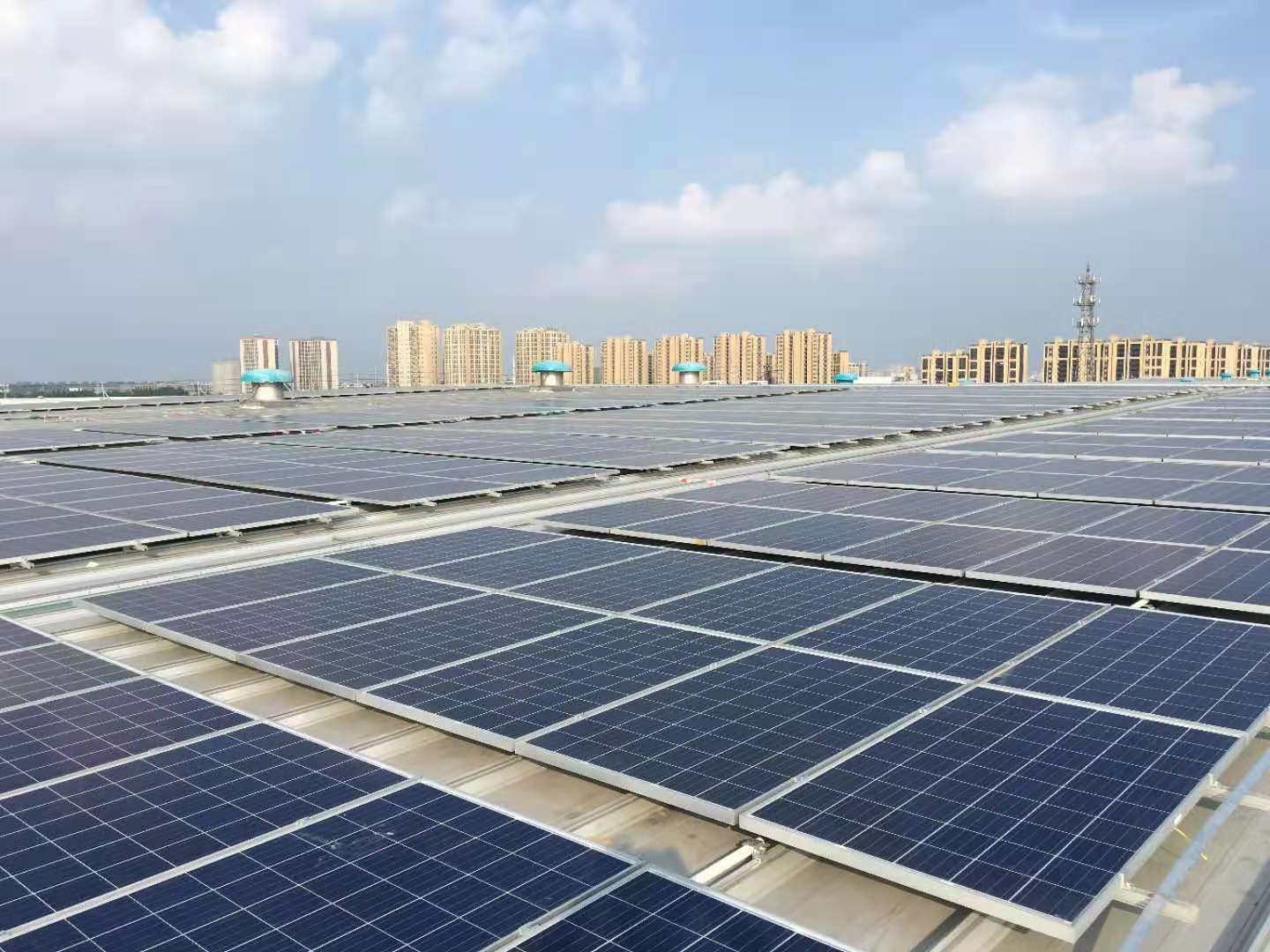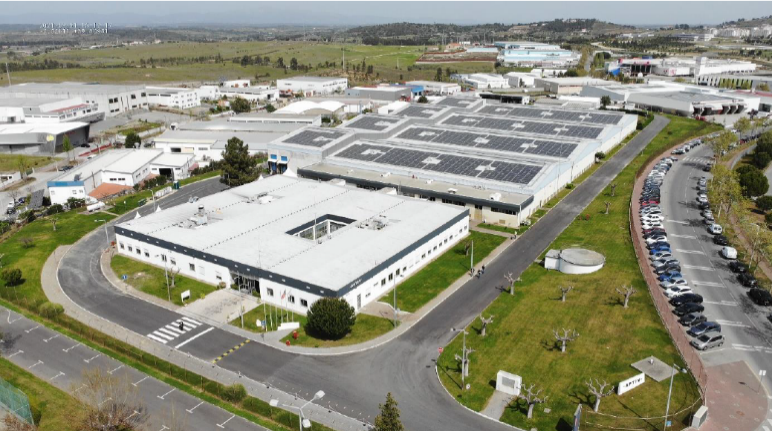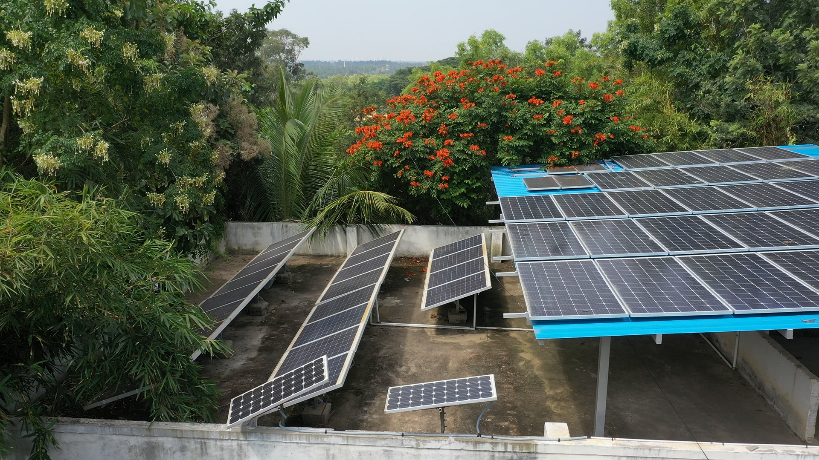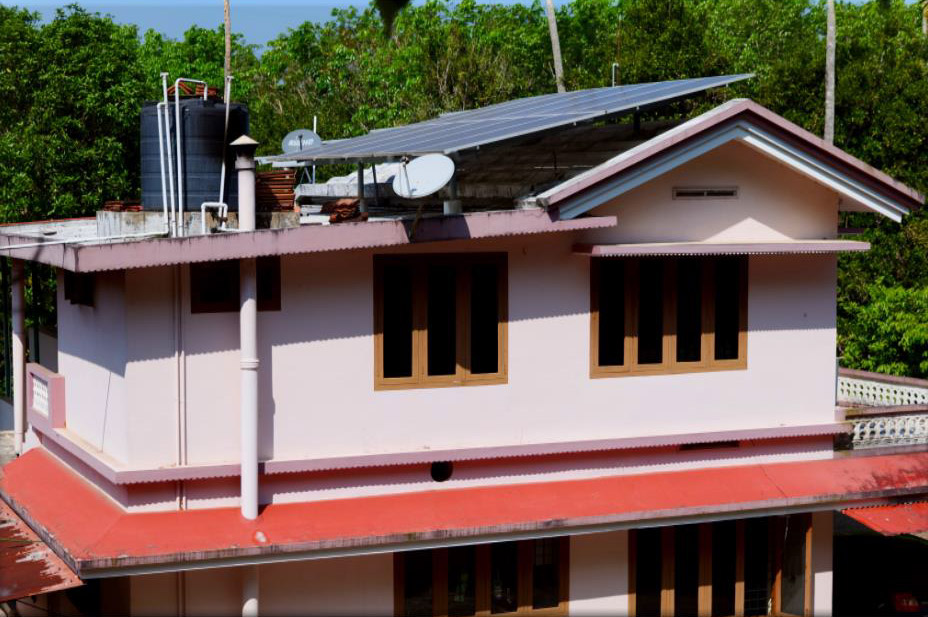On the Road to Carbon Neutrality, Every Kilowatt Counts
Aptiv’s mission to create a greener future is about more than just electrifying vehicles. As society moves to more renewable sources of power for mobility, Aptiv is also moving to more renewable sources for the production of our vehicles. In fact, we are committed to powering 100 percent of our operations with renewable energy by 2030. Living true to the Aptiv value to always do the right thing, the right way, Aptiv teams across the globe are reducing their electricity needs and implementing alternative energy sources wherever possible.
Aptiv’s internal 2021 Sustainability Awards highlighted numerous submissions from Aptiv locations around the world that took steps to install solar panels to lower energy costs and reduce CO2 emissions. We estimate that the work done by these award winners will reduce carbon emissions by over 1,700 tons a year in total — the equivalent of driving about 4.0 million miles in an average passenger vehicle. Here are some of the top examples.
Aptiv’s Shanghai plant embraces solar
The Shanghai Connection Systems (CS) plant partnered with the local utility and regulatory authorities to install solar panels on the roof of its facility. The solar panels are expected to produce more than 2.9 million kWh of electricity and reduce CO2 emissions by 1,600
tons annually. The installation has the added benefit of acting as extra thermal insulation on the roof of the building to reduce cooling costs. Overall, this project is expected to save about $372,000 annually in power costs. In addition, a second
phase of the Shanghai CS solar panel project will launch early this year to produce more than 2 million kWh of electricity.

Shanghai, China, CS plant rooftop solar panels
Small shift makes a big impact
Even when total solar reliance is not an option, just a partial reduction in reliance on the electric grid can have a meaningful impact. Aptiv’s EDS plant in Castelo, Portugal, installed rooftop solar panels to reduce its dependence on its local power supplier. Since its installation in April 2021, it has generated more than 700,000 kWh of clean electricity and reduced CO2 production by about 137 tons. The solar generation will cover the majority of the plant’s energy needs, saving about $40,000 a year.

Castelo, Portugal rooftop solar panels
Aptiv plant gives back sustainably
Demonstrating a commitment to the local community, the Bengaluru, India, Technical Center for Advanced Safety and User Experience partnered with the
International Institute for Energy Conservation to bring clean, sustainable energy to a local high school. The school’s solar project will produce about 9,000 kWh of electricity annually
and reduce carbon emissions by 7 tons while enhancing education, health and more for students and staff members.

Solar project at high school in Bengaluru, India
Individuals make a difference
Not all solar projects have to be big to make a difference. Our awards recognized an employee with the Aptiv CS plant in Cochin, India, who took the personal initiative to create an on-grid solar
panel project for his home, in partnership with the local state electricity board. The solar panels will produce about 600 kWh of excess electricity per year that is converted to AC current and fed to the main grid. On a monthly basis, the employee
will receive a payment for the surplus power fed to the supplier. This personal project is a great example of the impact an individual can have.
“Definitely, reducing my carbon footprint was my aim while doing this solar project. But also I analyzed the day-by-day cost increase of paid electricity and considered the gain in future when I move to an electric vehicle.” — Gervasis T. Varghese, Junior Technical Assistant (Programmer)

Personal rooftop solar project of an Aptiv employee in Cochin, India
The big picture
Of course, electricity sourcing is only one side of the equation. Many award winners developed unique solutions to reduce their electricity consumption. An EDS plant in the Brazilian municipality of Espírito
Santo do Pinhal automated its air conditioning system to save more than 150,000 kWh of electricity a year. A neighboring plant in Paraisópolis, Brazil, replaced sodium vapor lightbulbs with high-efficiency LED bulbs and exchanged an electric
water pump for a gravity-fed system.
Aptiv understands that solar installation is just one step toward a carbon-neutral future. That’s why we pursue many renewable energy alternatives and work closely with OEMs, vendors and regional power providers to find the best solutions for the entire supply chain. The work conducted by all of our award winners demonstrates that Aptiv’s commitment to sustainability is core to our business model.